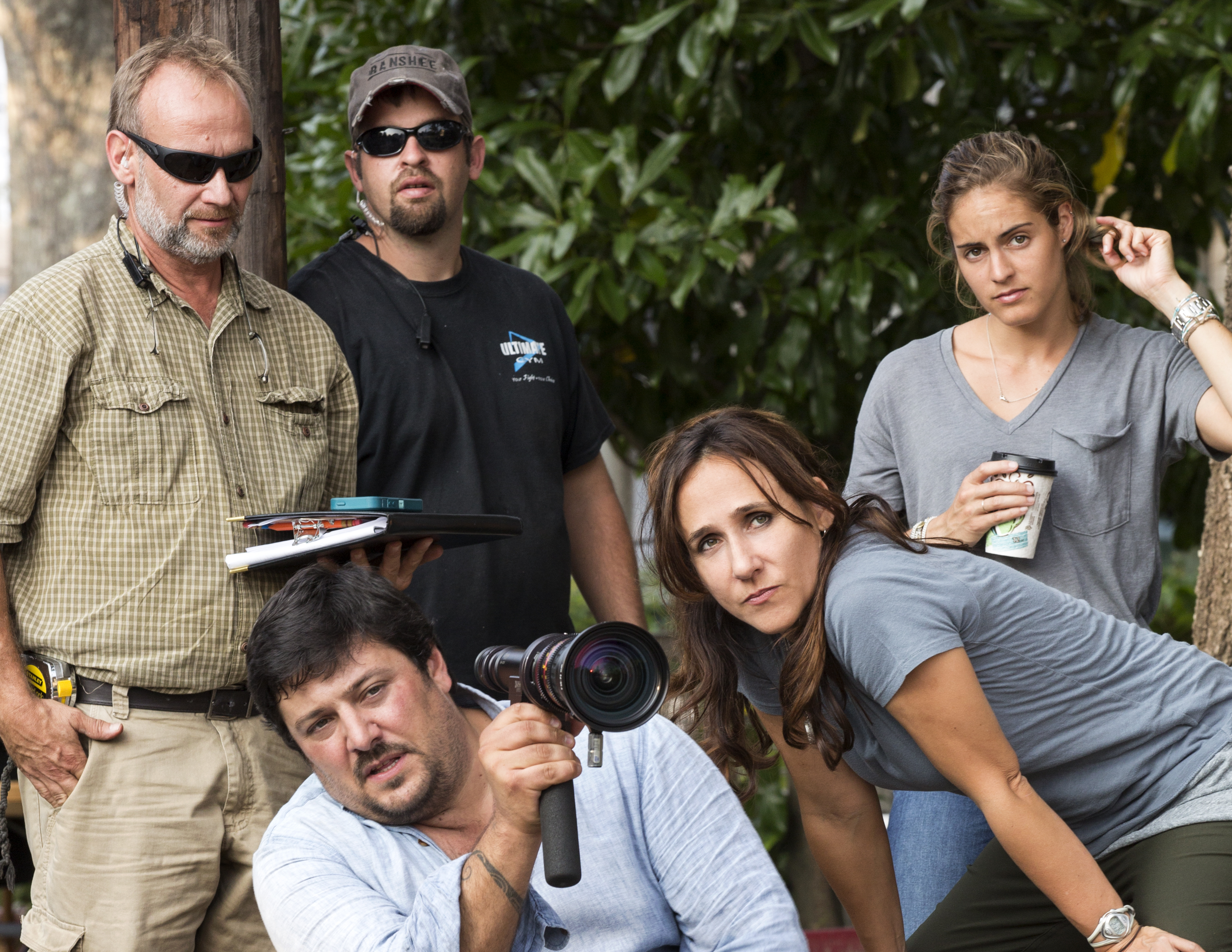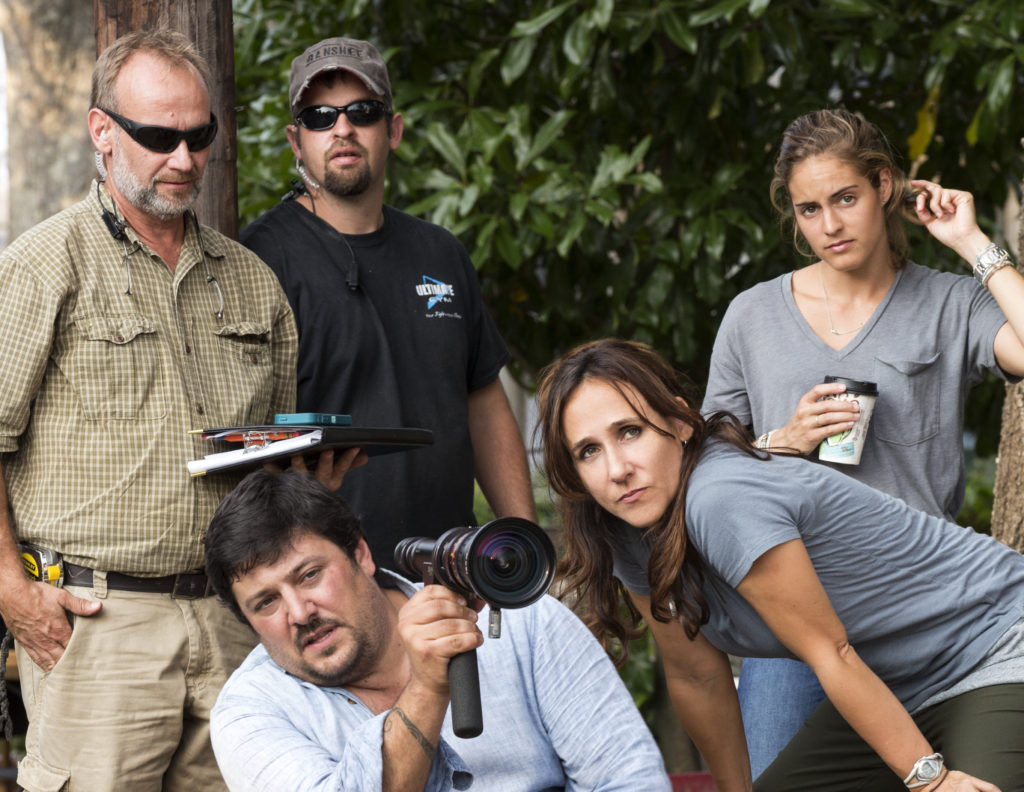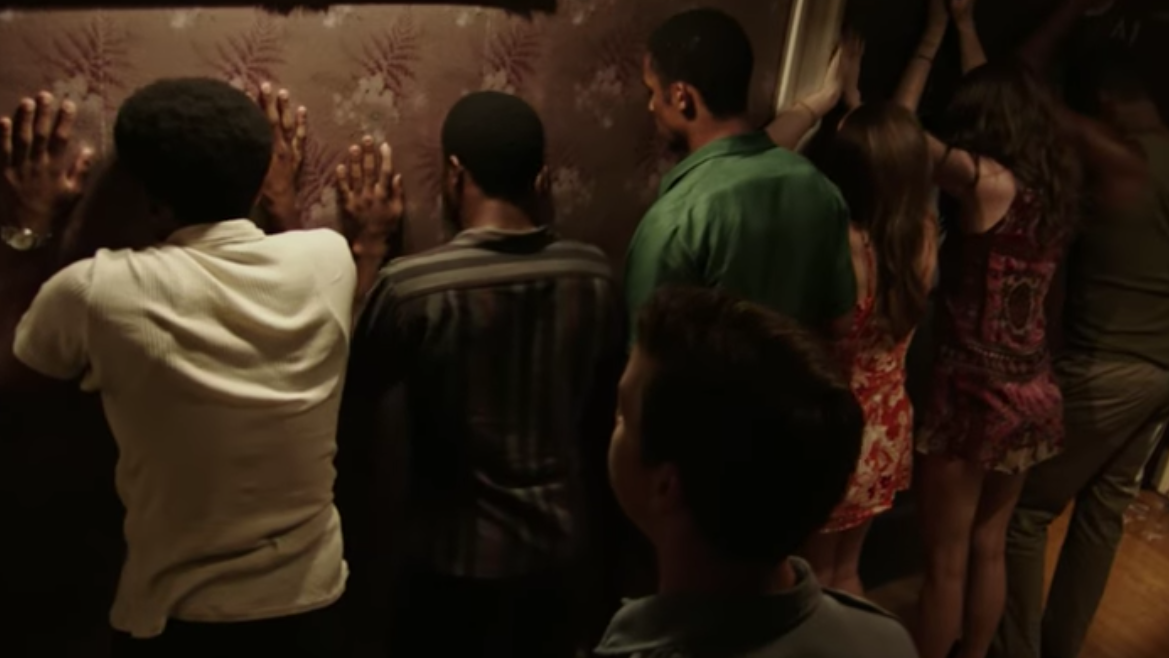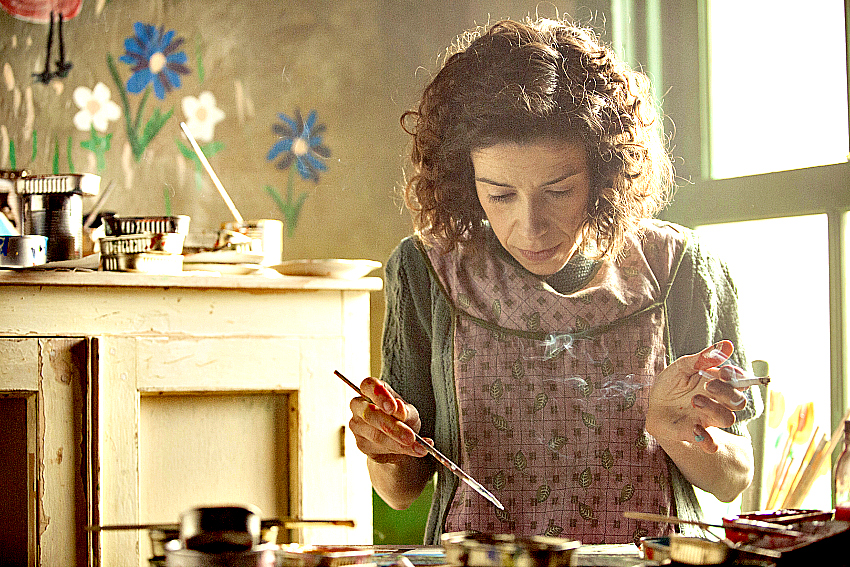

CINEMA SIREN INTERVIEW: Director of Megan Leavey Gabriela Cowperthwaite talks about female directors, female soldiers, the freedom of documentaries, and the gift of animal loyalty.
Coming this weekend is a film based on the real-life experience of a female marine and her canine companion. Review is HERE. I spoke to director Gabriela Cowperthwaite about her experience:
Leslie Combemale for Cinema Siren: Kate Mara recommended you to direct this film. Would moving to narrative feature films been a natural progression for you, or is documentary work always going to be your focus, with occasional features?
Gabriela Cowperthwaite: I thought of myself as a documentary filmmaker forever, and as a result of Blackfish, I got interest for me to work in features. It was agent-driven. My agent and manager came forward and asked if I would be interested in doing features. I said, “Yes! of course!” I love movies, it wasn’t something I had ever thought of but it was brought to me and I thought it sounded amazing. I started getting scripts, and became attached to another film and then this script arrived via Kate and she said she would love to recommend me to the producers, and I loved it and it all went super fast. We were on a plane. They were green-lit, they were ready to go, they just needed a director. It was very very quick.
CS: You directing this story seems perfect, since not only had you directed Blackfish, but you’d also worked as an embedded filmmaker with the military in several countries at war. Having had those experience, what surprised you in making the film?
GC: I tell people i wanted all my previous worlds to inform this one, so it was almost more in technique. What I love in documentary and what I’ve always loved is was not knowing what was going to happen. You show up with your camera and everything, you can plan and hope it will go a certain way, but it just never does. You just have to be so spry and so ready to recalibrate at a moment’s notice. The adrenaline that comes with that is a rush, but also when that thing happens it feels amazing. IT feels like a piece of magic. Going into narrative, I was like “how am going to find those moments?” I found myself engineering moments of spontaneity and letting actors ad lib and saying “forget about the lines, let’s just be”…that was an interesting challenge for the actors but they’re so good at a number of things and they were excited to have that freedom and be able to go off script so I think it worked. It definitely came from my documentary.
CS: Are there examples of some of the ad libs that led to something inventive?
GC: One thing very much was Common. Gunny Martin. His humor. Totally deadpan but it’s totally him. A lot of that isn’t scripted. Discovering that he, this larger than life, musician Oscar winning human is actually hilarious. He really was having fun with it.
CS: I know he had done a lot of research about the way people become marines and how it influences their personality…
GC: exactly. Gunnary sergeants aren’t just going to drill into you. It’s not going to be serious discipline and being dressed down. Or yelling at people. In that kind of position you have to find ways to inspire people. For him it was humor and messing with people. But it came from him! It came from the research but he thought, “I can mess with these guys…”
CS: Working with dogs and having them be so much a part of the story had to be interesting. You are so much an activist and so concerned about the safety of the animals. I know there are explosions and stuff and rightly lots of fans who love animals are concerned about them. Can you talk about that?
“The dog rules. Dog is number one on set. They don’t choose to be there. You’ve got to know that and make sure you make them comfortable in every way you possibly can.”
GC: A lot of the explosions are enhanced by sound design so it doesn’t scare the dogs. That’s all post production for safety. There are loud noises on set, that’s for sure. What it would mostly be is loud noises would happen, the moment they heard them the first time, the second time, they weren’t startled as much. For me it was most important to do as few takes as possible with them. There are a number of dogs, so you never use one dog more than you need to or more than you should. But for me it was like, and everyone agreed with me on this, Kate, me, the producers, the trainers, they all knew he’s going to deliver. He’s the one you don’t need worry about. Kate is an animal person, she read him and they became buddies and bonded—professional actors that became friends…she knew what to do with him, he knew what to do to deliver, so it was just a matter of us being together and on top of it all. Are we rolling at the time? There’s no time to adjust the light. This is happening right now, and we’re not going to make him keep doing it. We’ve got to remember that. I gave a big pep talk about that even before we started shooting. The dog rules. Dog is number one on set. They don’t choose to be there. You’ve got to know that and make sure you make them comfortable in every way you possibly can.
CS: What about this particular story really hooked you? What made you so passionate about wanting to do it?
GC: I would say it was a full blown character and such a unique opportunity that you think you’ve heard before, a war story about someone being transformed by being at war and coming home. It was done through two completely unique agents, two completely unique access points. A female, a marine, we don’t hear about women in war very often and certainly not in movies, and a canine. It’s like a brothers-in-arms story, but there’s not a brother anywhere in sight. She felt fresh to me and cool and someone I could know. I liked that there were female writers behind it so she had some comebacks and things to say, and an authentic perspective. She was someone who you could tell was written by a woman. and honestly it was greenlit. What I’ve come to learn is with a documentary, I just get up and go. I find a story and grab a few shooters and we go do it. That is an amazing freedom that comes with documentaries. In the narrative feature world, you are asking permission to tell stories a million times over. It’s this dance you’re doing, it’s so strange and so new. You’re pitching it, you’re like but I know how to do this and this is how I’m going to go about it. It’s strange because to you it has been taken for granted that you just get up and go out and make a movie. When you find one that’s ready to push the go button, you’re finally let’s go! Really having it be “go time” was a huge factor.
CS: as someone who has focused on documentaries, and as a woman, do you think it IS the freedom, and the fact that you don’t need permission, something we often struggle with as women, is the reason there are so many women in the field?
GC: I think for sure we can’t underscore enough that you don’t have to have permission, you just go do it. I think that we are adept at paying attention to things that other people overlook. We aren’t going always for or driven to the shiny thing, the big thing, the thing that makes all the money. The obvious thing…we are driven to give a platform to someone that nobody’s paid attention to, an issue that nobody seems to care about, like unsung heroes. I do think women search for nuance and subtlety and we find beauty in those things. There are certainly men in documentaries that do that, and spectacularly well. We in the narrative world, I think we are still fighting this belief that we female directors are this big risk.
CS: Wonder Woman is helping to change that, I hope.
GC: It’s a huge deal, and it’s Patty Jenkins, and I will say this. She’s a phenomenal filmmaker and someone I’ve been aware of since Monster. If she was allowed not only to be the director of this film, but be listened to, and if her aesthetic and her work onscreen, and her creative mind they hired and checked off that box that they got a female film director…when they checked that box are you taking her creative mind with you? if that’s the case, if they have, it is gonna slay. If it doesn’t slay, it isn’t a Patty Jenkins issue. I’m going on record saying that. If they let her do her thing, it’s going to be amazing.
CS: What is next for you?
GC: I want to always do narrative and always do documentary. It would be amazing to play in both sandboxes. It’s just story-dependent. I have to love that story and feel like I’m the agent for it. Is a documentary the way in, or is narrative the way? It’s totally story-dependent. The next thing shifts all the time. Yes, there are piles of scripts I see, but they aren’t necessarily what i’m being considered for, but stories I’d go to the mat for. That’s the different between being a “FANCY” narrative director, and a new narrative director.
CS: What are you hoping people are going to get out of this movie?
“We say “thank you for your service”, but what does that mean?”
GC: You know, a few things. I do think it’s a love story, a relationship story. The themes are loyalty and friendship and what having a bond means and how it changes you. I hope at some level people get that and are inspired by that. Those are the themes in real life that transform people every day. I also hope a couple of things: the third act was really important to me, her coming home and what it means to come home, and this was a very specific of that. Maybe if we can crack open what it means to come home through, that would be great. We say “thank you for your service”, but what does that mean? We say that, I think of that all the time. I have no idea what the veterans coming home have experienced or the depth of their service. I don’t know what they experienced.
CS: with animals used in combat, you take that a step further, because they can’t tell you.
GC: That’s right. You say thank you for you service and I want people to think about what service means. People come home and there are many times when they come home broken. How do we equip ourselves to help them get what they need? In Megan’s case, it was to partner her back with her dog. In their case, neither of them were whole without each other, and both were healed by being together. Hopefully it gives us a peek into how we can do that for everyone, and how to feel compassion for them.
Animals and dogs are loyal and companions and I know that stuff in a general way, but when I learned about the canine unit, and I learned about the extent to which they sacrificed for hundreds of years by our human sides during wars fighting along side us and they don’t choose it the way we do. Showing them the respect and appreciation for what they have done, through their loyalty, is the least we can do for them.


